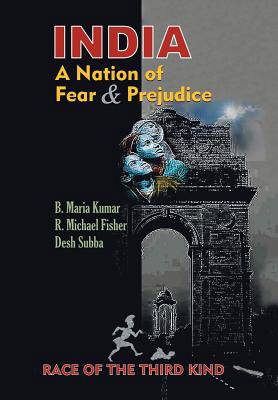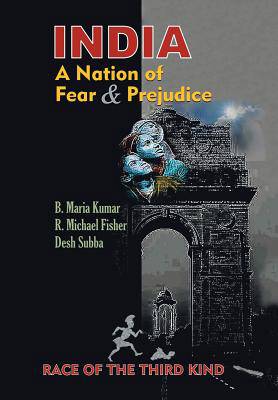
- Afhalen na 1 uur in een winkel met voorraad
- Gratis thuislevering in België vanaf € 30
- Ruim aanbod met 7 miljoen producten
- Afhalen na 1 uur in een winkel met voorraad
- Gratis thuislevering in België vanaf € 30
- Ruim aanbod met 7 miljoen producten
Zoeken
India, a Nation of Fear and Prejudice
Race of the Third Kind
Desh Subba, R Michael Fisher, B Maria Kumar
Hardcover | Engels
€ 37,95
+ 75 punten
Uitvoering
Omschrijving
So many nations today, large and small, are faced with compelling global and local circumstances, breaking acute crises, and lingering long-term chronic problems that demand leaders and followers to cope as best they can. However, there's a growing suspicion in most everyone's minds-from the higher classes to the lower classes, across races, religions, and various differences-where there is a deep feeling that something big needs to change. From real threats and tragic events like violence, crime, wars, global warming, mass extinctions to more specific problems of population densities to health concerns and economic near-collapse, people know that living in fear is not a quality way to live. India is a unique and great nation, with its tragic realities in the past and present, haunting its future. B. Maria Kumar, born and raised and having worked all his career in the streets, knows India well and knows what needs to change. He writes from great intellectual acumen, an understanding of history and mythology, and with vision for a better India. He has invited two colleagues to respond to his analysis of problems and solutions, each of them (Subba, a Nepali philosopher and poet living in Hong Kong, and Fisher, a Canadian philosopher and educator) to respond to his views. This book brings a trifold synthesis of how the nature and role of fear is critical to the shaping and destiny of India. Not enough development theories or thinking have invoked "fear" as a major construct to analyze, as a new way to interpret culture, religion, policies, plans and governance overall across the world. India seems the perfect location to start a new critical and creative consciousness that sets goals that the three authors believe are essential for India to make progress into the twenty-first century. Growing insecurity, uncertainty, mistrust, and corruption that accompany them is no way to build a nation resilient for the major challenges coming. In the face of a daunting task, the authors step-up boldly into the dimension of vision and realities facing a nation. They don't shy away from saying what needs to be named, for only then will such honesty clear a path of fearlessness forward. This book will serve as a guide for many in India and its allies to rethink the ways they have understood the problems in India's development.
Specificaties
Betrokkenen
- Auteur(s):
- Uitgeverij:
Inhoud
- Aantal bladzijden:
- 268
- Taal:
- Engels
Eigenschappen
- Productcode (EAN):
- 9781796002997
- Verschijningsdatum:
- 4/06/2019
- Uitvoering:
- Hardcover
- Formaat:
- Genaaid
- Afmetingen:
- 152 mm x 229 mm
- Gewicht:
- 548 g

Alleen bij Standaard Boekhandel
+ 75 punten op je klantenkaart van Standaard Boekhandel
Beoordelingen
We publiceren alleen reviews die voldoen aan de voorwaarden voor reviews. Bekijk onze voorwaarden voor reviews.











